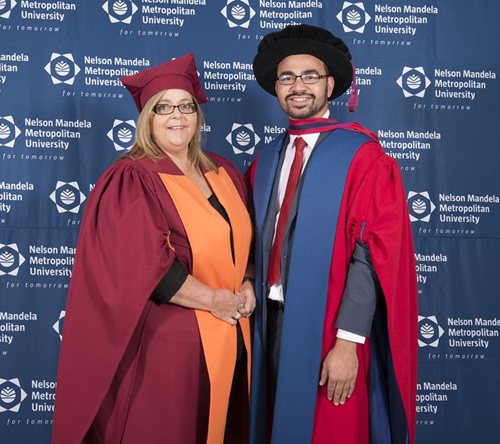"Initially, my research started off with developing a model for managing corporate sustainability. The focus was on larger businesses and the management of the whole range of sustainability issues (economic, social and environmental) in these businesses. My initial model was really interesting and when I started approaching different organisations to see if they were willing to participate in validating the model, by means of a case study, a number showed interest. Coincidentally, my research coincided with the launch of the new Integrated Report Guidelines. The guidelines also used a similar approach to reporting on corporate sustainability as my model. The common denominator was seeing the aspects of sustainability as capital. Thus, managing sustainability requires corporations to manage both the flow and stock of economic, social and environmental capital. It also needs to be based on a systems and stakeholder approach. However, given the broad nature of the research and (I suppose) the intrusive nature of the methodology all the organisations felt the research would be too cumbersome. I thus needed to change my angle.
My promoter always told me that I need to focus my research and ensure that I can actually execute what I set out to do, and this wasn't more ture in this instance. I decided that I would only focus on environmental management because it contributers to both the economic and social performance of a business. For example, ensuring that waste is properly managed can save cost associated with fines, clean-up operations and landfill use and it can ensure a safe and healthy environment for employees. I also decided to look at small business as many researchers suspect that these businesses have a larger impact on the environment than their larger counterpart. These businesses are also more accessible to researchers. This worked like magic! No only was there large gape in the literature on the environmental management of small businesses, I could actually execute my research by surveying a large number of small businesses.
However, this was not the end of the obstacles related to my study. After regaining focus, I had to develop and empirically test a model to explain environmental management in small businesses. The target would be small business owners as they represent the heart and soul of their enterprises and usually make decisions regarding environmental management. Developing the model meant I had to consult literature from different fields of study, such as psychology, education and business to understand what drives small business owners to implement environmental management in their businesses. I also had to accommodate businesses who had those who had not implemented environmental management in their businesses. Amongst those who had implemented environmental management, less formal practices had to be included given the nature of small businesses. I also wanted to introduce moderating variables into my model to give a clearer picture of the decisionmaking processes of small business owners. I could thus answer questions such as: did gender or education influence the relationship between environmental attitudes and behaviours?
However, data analysis now proved to be more intricate than expected and very little people at the univeristy had used the technique I was planning to implement; moderated multiple regresssion analysis. With the help of my promoter we acquainted ourselves with the technique and had enough knowledge to ensure the rigour of the data analysis. It took a little longer than expected, but the results produced were amazing. For example, significant moderating effects were found for gender and age, but not for education. Thus meaning that my independent variables (e.g. subjective norms) would influence the small business owner's environmental management implementation different for males and females. The results, will help us understand the conditions under which my independent variables will influence my dependent variables.
I also experienced some difficulty with balancing my work commitments with my studies. Firstly, taking care of more than 1000 first years and completing my studies was challenging. The first years are notorious for needing more attention and the sheer size of the class means that we spend up to three weeks marking and finalising test and assignment results. Fortunately, I was working with colleagues who could share the load with me and my supervisor was relentless in her motivation. In addition to my lecturing duties, I was also co-supervising masters students, but with the assistance of my co-supervisor we managed to guide both students to success. One of the students even passed his masters with a distinction! I was very proud of his achievement. Both honours students also passed and successfully completed their honours."

ABOVE: Prof Miemie Struwig and Dr Riyaadh Lillah